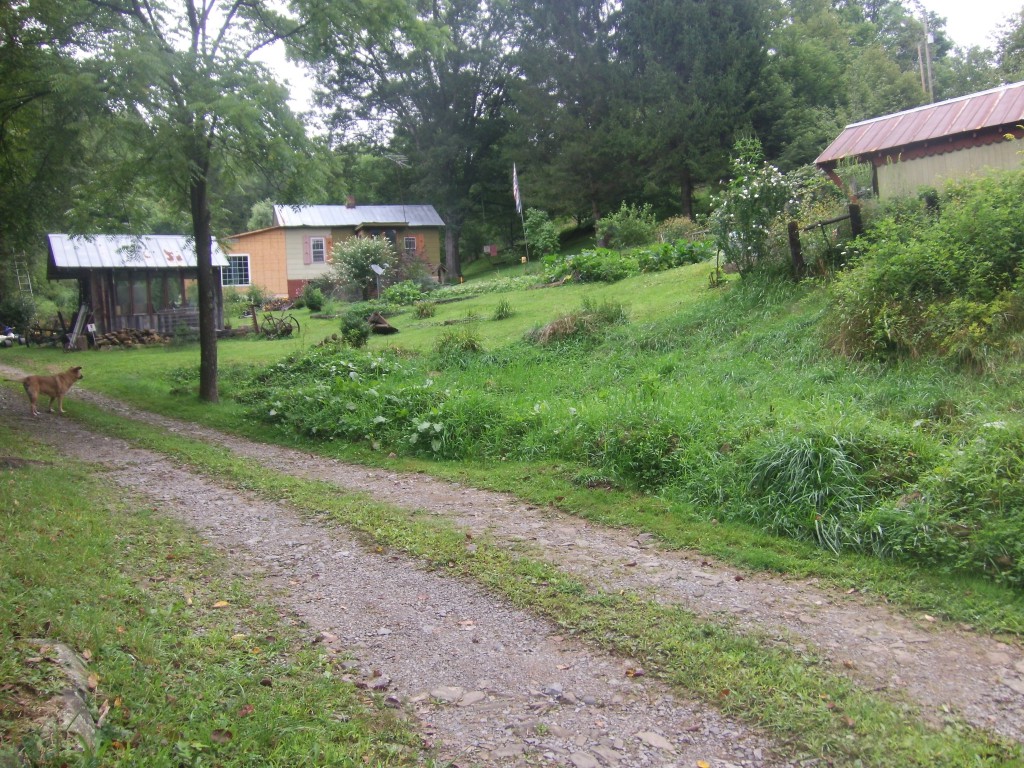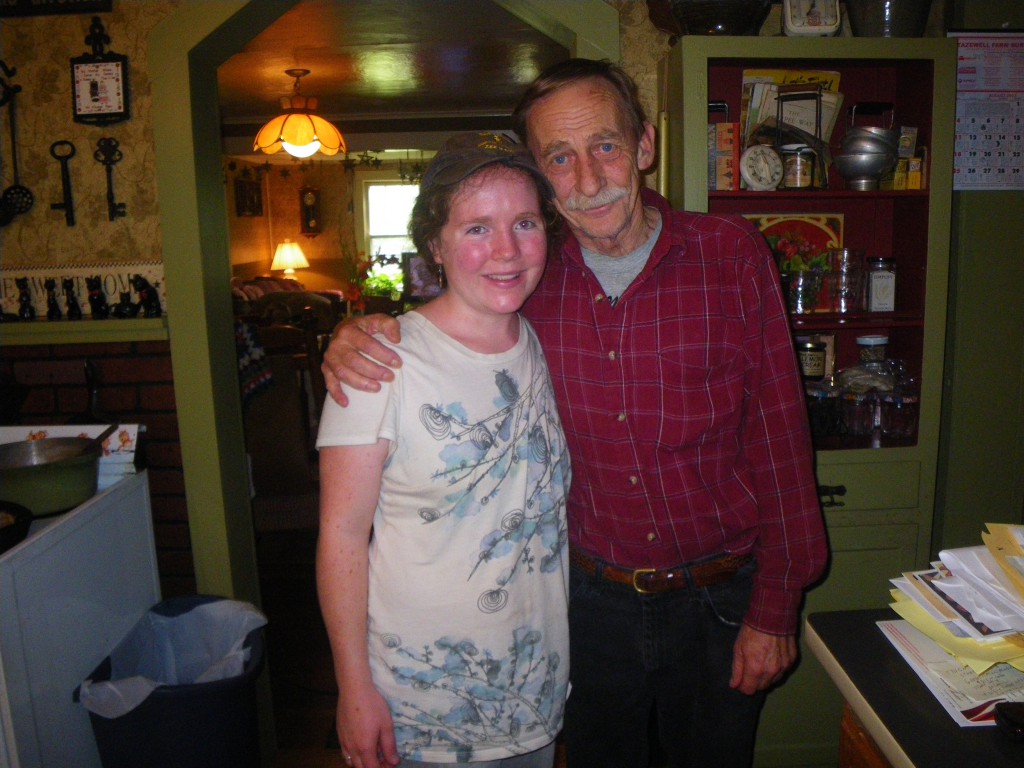ALL, News
Trust in the Land: A stepping-stone to sovereignty and sustainability
Monday, June 2nd, 2014
Guest blog by Laura Rigell with Keeper of the Mountain Foundation
The connection between healthy land and human life is easy to ignore in a concrete jungle such as Charleston. Even rural West Virginia has become speckled with Dollar Generals and One Stops, which can provide for all our basic needs. Nevertheless, many residents still grow backyard gardens and preserve produce to last until the next summer. Gardeners and farmers uphold the region’s legacy of living off the land.
Today, an obstacle to true self-sufficiency is the lack of local control over the way the land is used. Around the turn of the 20th century, logging and mining companies bought out much of this state’s natural resources. Tycoons often selectively purchased timber or mineral rights, undermining residents’ sovereignty. Doing so involved severing those rights to extraction from the right to use the surface. This has left most residents of southern West Virginia without ownership of the minerals under their property. To access those subsurface resources, the mineral owner can damage the surface as much as is “reasonably necessary.” Without a long-term interest in this region, extractive industries often pillage the surface, leaving behind eroding mountains that are unsuitable for growing crops or harvesting water.
In recent decades, some institutions have come to recognize the importance of healthy land. Though public protection is a common approach to conservation, one tool that has become popular is the conservation easement. A conservation easement is a uniquely private form of land use control. Through an easement, a landowner restricts the way his/her property can be used. Often, landowners forbid development or logging, to permanently preserve a farm or forest. These restrictions accompany his/her deed forever, and are enforced by a non-profit entity called a land trust. The land trust visits the property annually to assure that the current residents are abiding by the easement. If there is an easement violation, for example someone has clear-cut a forest, the land trust addresses this by negotiating with the resident or, if necessary, filing a lawsuit.
Currently, land protection through conservation easements is not an option for most Appalachians. The region’s conservation organizations have been accessible to only a minority of the population- those privileged with mineral ownership, large tracts of land, and disposable incomes. Existing conservation efforts, though valuable, do not actively confront the assault on people’s welfare by land speculation, unsustainable development, and mineral extraction.
I spent last summer as an intern with Coal River Mountain Watch. I researched the relationship between easements and mineral rights and decided that easements could play a protective legal role even for severed parcels. This discovery led me to propose the establishment of a new land trust, that aims to work with small, less economically-advantaged residents to protect their land. Keeper of the Mountains Foundation (KoTM) agreed to take on this role.
Keepers began by overseeing the easement for Sid and Dana Moye, which mandates that their 24-acre parcel remain farmland forever, with some of the forest permanently protected. The Moyes not own the minerals under most of their property, though this easement will likely dissuade extractive companies from mining on the Moyes’ land. Keepers will not limit the scope of its easements by requiring a minimum acreage or monetary contribution. Because of this, Keepers has the potential to make land protection accessible to all Appalachian residents.
By the end of 2014, Keepers aims to have 1000 acres of land protected in easements. Work towards this goal will begin this summer, with the support of CRMW interns. These interns, including myself, will be using the Moyes’ 30-page easement as a template to draft easements for four more residences.
My vision for this new land trust initiative is to re-situate Appalachians as authors of their own futures. I see the potential for these easements to draw the age-old connection between people and land health. As in the case of the Moye property, easements can promote uses that prioritize community and ecological welfare. By promoting responsible land uses, these easements can lift up the Appalachian heritage of self-sufficiency and local resilience.











